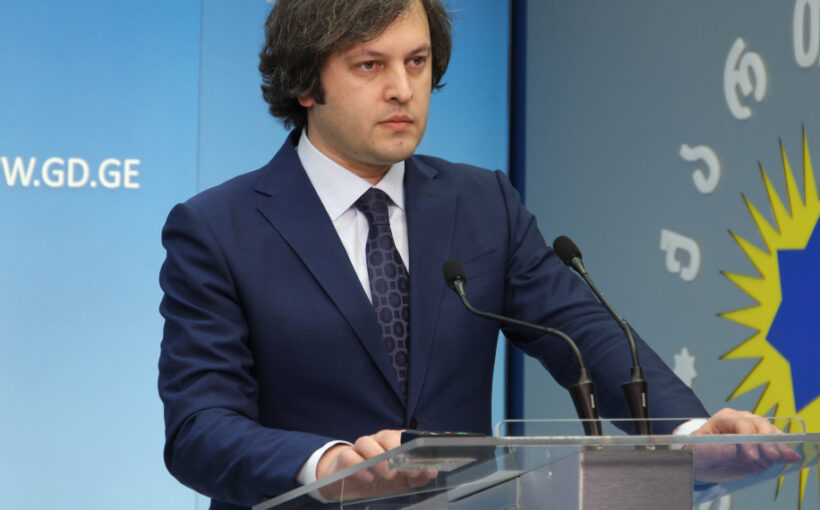Georgia’s Prime Minister Irakli Kobakhidze slammed the U.S. for its “false statements” on his government’s controversial “foreign agent” law which has been met with widespread protests in Tbilisi and criticism from Western officials.
The U.S. has described the bill, which would require NGOs and media outlets that receive more than 20 percent of their funding from abroad to register as agents of foreign influence, as “Kremlin-inspired” and “incompatible with democratic values.”
Kobakhidze, from the ruling Georgian Dream party, rebuked Washington on Friday: “False statements made by the officials of the U.S. State Department about the transparency bill and street rallies remind us of similar false statements made by the former U.S. Ambassador in 2020-2023,” he said in a post on X.
At the time, these comments aided “the facilitation of violence from foreign funded actors and to the support of revolutionary processes back then,” he added.
On Tuesday evening, Georgia’s security forces used tear gas and riot shields to disperse crowds of demonstrators protesting against the law in Tbilisi, prompting Western politicians and local officials to express concerns over the police crackdown.
Georgian lawmakers on Wednesday waved through the bill, despite growing public outrage and repeated warnings the move may torpedo the country’s EU aspirations.
“The legislation and Georgian Dream’s anti-Western rhetoric put Georgia on a precarious trajectory,” the U.S. Department of State said in a statement Wednesday, adding: “We urge authorities to allow non-violent protesters to continue to exercise their right to freedom of expression.”
Kobakhidze retorted that he had not “expressed [his] concerns … about a brutal crackdown of the students’ protest rally in New York City,” apparently referring to the pro-Palestinian protests at New York universities in which more than 300 demonstrators have been arrested.
Supporters of the foreign agent law within the Georgian Dream party say the bill is modeled on the U.S.’s own Foreign Agent Registration Act (FARA).
However, FARA only applies to lobbyists actively working on behalf of the governments of other countries and communicating with lawmakers, whereas Georgia’s version of the law would apply to any and all civil society groups, local media outlets and NGOs that receive as much as 20 percent of their funding from overseas, making it more similar to Russia’s foreign agent law which has been used to quash dissent in the country.
Gabriel Gavin contributed reporting.


